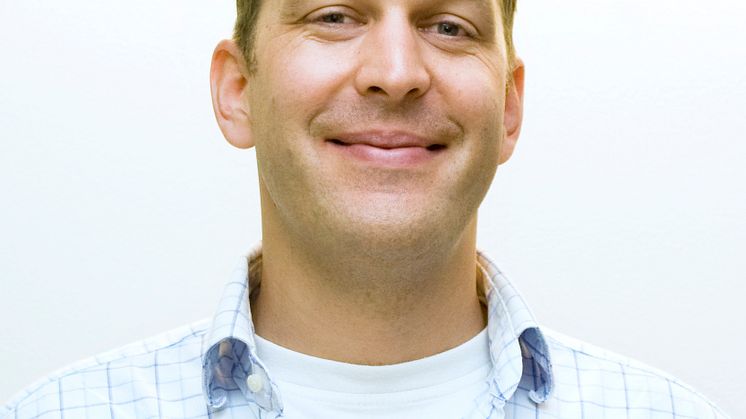Pressmeddelande -
Back pain in both master and dog
Both humans and dogs can develop back problems. Slipped discs have similar symptoms and can be treated with the same methods regardless of whether the patient has two legs or four. This is shown in a new dissertation at SLU (Swedish University of Agricultural Sciences).
“I’ve seen many similarities between dogs and humans when it comes to worn-out discs” says veterinarian Niklas Bergknut, the author of the dissertation.
Among all breeds of dogs in Sweden some 3.5 percent have some form of back trouble. Males are affected 1.5 times more often than females.
Short-legged dogs are more likely to have back problems, and the dachshund is affected more than others. Some 20 percent of dachshunds develop slipped discs. But larger, hard-working dogs, such as German shepherds and other working dogs, often have back trouble as well.
The very fact that back problems are so common is something that Niklas Bergknut has taken advantage of in his research. These research findings are of great comparative importance and can yield synergy effects for both veterinary and human medicine.
“Studies of dogs’ backs provide enhanced knowledge about human back problems, since the course of the disorder is very similar,” he says.
Early diagnosis key
In humans, degeneration of discs in the spine is diagnosed at an early stage with the help of magnetic resonance cameras. Early diagnosis based on the same type of examination can also be performed on breeds of dogs that are in the risk zone for slipped discs. These dogs can hopefully be treated preventively in the future.
In his research Niklas Bergknut tested a new method of treatment for both humans and dogs with back trouble. A disc prosthesis, made out of a hydrogel, has been developed and tested in the spines of deceased dogs. The prosthesis has proven to restore normal anatomical distance between the vertebrae and normal mobility patterns for the backbone.
In his studies Niklas Bergknut did not use laboratory animals. He was able to work with the spines of deceased dogs and material gathered from dog patients.
Restore normal movement
“A future vision is to be able to perform operations that restore normal and lasting mobility patterns in dogs. Today discs are made rigid in operations, with bone mass being removed over the spinal marrow, to provide room. Unfortunately, these dogs develop back problems again, so improved treatment methods are needed.”
In his studies Niklas Bergknut has collaborated with and been supervised by researchers in both Sweden and the Netherlands. His dissertation will moreover be defended at two universities, SLU in Sweden and the Faculty of Veterinary Medicine at Utrecht University.
Niklas Bergknut, Department of Clinical Sciences at SLU (Swedish University of Agricultural Sciences), will publicly defend his dissertation in veterinary medicine Intervertebral Disc Degeneration in Dogs on Friday, January 21, 2011.
For more information: Niklas Bergknut +31 611533 899; niklas.bergknut@slu.se


